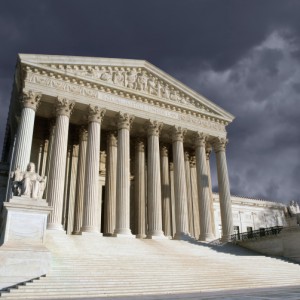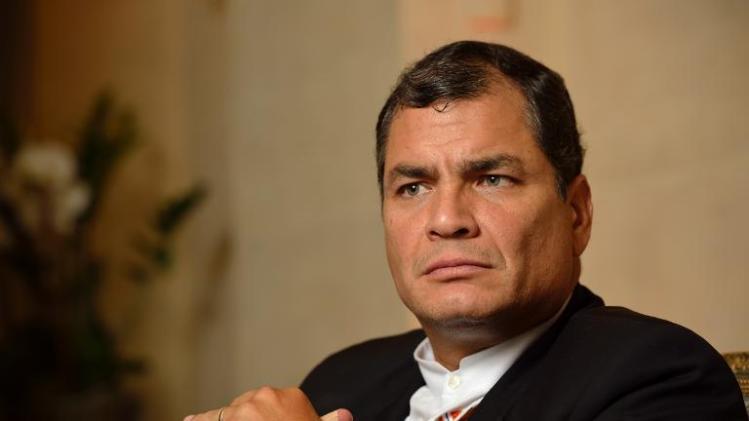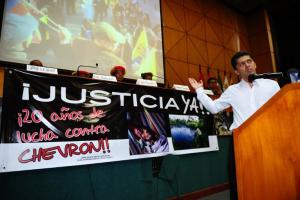(Reuters) - Ecuador's Socialist President Rafael Correa has often
railed against allowing private trading firms to control the country's
oil shipments, a top source of export revenue. Soon after his election
in 2006, Correa pledged to cut out middlemen.
But on his watch, the opposite has happened. As the OPEC country committed to selling the bulk of its export crude to Chinese state-owned firms, a little-known Swiss trading house and its business partners have secured a role as intermediaries in the South American country's oil trade.
Internal shipping schedules from state-owned oil firm PetroEcuador show that PetroChina Co Ltd. - the main buyer of Ecuador's crude - engaged a small Hong Kong-based firm named Ursa Shipping Ltd to help ship the oil. Together, they handled around two-thirds of the 33 million barrels of oil Ecuador exported during the second quarter, the schedules indicate. Around 70 percent of their shipments were sent to the United States directly or to PanPac, an area offshore Panama where oil cargoes are often loaded onto U.S.-bound vessels.
Market sources say Ursa acts as a shipper for Geneva-based oil trading firm Taurus Petroleum, whose mainstay business a decade ago was selling Iraqi crude under U.N.'s oil-for-food program. For the past four years, Taurus has played a key role selling Ecuador's oil along the U.S. West Coast. According to a Reuters analysis of U.S. oil import data gathered by port intelligence group PIERS, Taurus's shipments accounted for nearly 10 percent of California's oil imports in the first nine months of 2013.
Much of the Ecuadorean oil Taurus sold in California arrived via Panama, where ships laden with crude allocated to PetroChina and Ursa have sometimes transferred their loads into other tankers, according to Reuters tanker-tracking data.
In total, Ecuadorean oil - largely handled by PetroChina's private trading partners - makes up 17 percent of the U.S. West Coast region's 1 million bpd crude imports this year. Only Saudi Arabia and Canada supply more.
It is perfectly legal for PetroChina, the world's No. 2 publicly-traded oil firm, to enlist traders to market Ecuador's crude, little of which is shipped to China. PetroChina buys Ecuador's crude under long-term contracts that provide up-front Chinese funding for cash-strapped Ecuador.
But the role of private entities is a potential political issue in Ecuador. Under Correa, well-known trading firms such as Glencore Xstrata, which had previously bought large volumes of Ecuador's crude, haven't been allowed to purchase PetroEcuador's oil. Instead, Correa has touted Ecuadorean oil sales to China as a triumph of trade between friendly governments.
A U.S.-based spokesman for PetroChina said all of its business with PetroEcuador is "within the boundaries of applicable laws and corporate policies." The firm declined to comment on any relationships with trading firms. A spokeswoman for PetroEcuador declined comment. President Correa's office didn't respond to questions from reporters.
Taurus, incorporated in 1993, declined to discuss its business or to make its founder, Benjamin Pollner, available for an interview. "We are a private company," said Tancrede Baron, Taurus's finance director, by phone from Geneva in late August. "Our business is confidential." Calls to Ursa weren't returned.
CALIFORNIA-BOUND
Valued at around $6 million per day, Taurus's shipments of oil to California earlier this year were sold to customers including Chevron, which Correa has declared "an enemy" of Ecuador. Chevron declined comment on the purchases.
The California oil giant is locked in a massive lawsuit with Ecuadorean plaintiffs over previous decades of alleged pollution by Texaco, which Chevron bought in 2001.
This month, Ecuador's supreme court upheld a lower court verdict against Chevron, ordering it to pay $9.5 billion.
Correa has in the past decried private oil traders as "corrupt" middlemen who profit at PetroEcuador's expense.
"We are done with intermediaries for our crude," he said in a speech after his 2006 election. Later, in 2008, he touted a direct contract for fuel supplies between PetroEcuador and PDVSA, Venezuela's state oil firm, as cutting out middlemen. Nevertheless, PDVSA later enlisted traders including Glencore to procure the fuel supplies.
Some Ecuadorean opposition figures, including a leftist congressman, Clever Jimenez, have criticized the government and PetroEcuador for allowing PetroChina to farm out business to traders. Detractors say traders are able to sell Ecuador's crude at a big mark-up abroad, which could imply lost revenue for PetroEcuador.
Correa has said Ecuador receives a fair price from PetroChina.
What Chinese firms do with the oil after they take ownership of it in Ecuador isn't PetroEcuador's concern, the company's international trading manager, Nilsen Arias, told Reuters by phone. "The destination is at their liberty," Arias said. He declined to comment on PetroChina's trading.
Taurus has been in the spotlight before. A 2005 report by former U.S. Federal Reserve chairman Paul Volcker identified Taurus and other Pollner-affiliated firms as having bankrolled $18.9 million in illicit payments to win Iraqi oil cargoes during Iraq's U.N.-controlled oil-for-food program. No charges were brought against Taurus or the other Pollner firms. Taurus denied any wrongdoing.
INTER-CONNECTED TRADERS
During most of 2006, Taurus imported around 105,000 barrels per day into the United States, including 54,500 bpd from Ecuador. Its shipments then stopped, the PIERS data shows, resuming in mid-2010 as PetroChina's role in Ecuador grew.
Ecuador's decision to let PetroChina trade its crude freely contrasts with the policies of Saudi Arabia, Venezuela and several other OPEC countries that rarely allow buyers to resell their oil.
In recent months, another company appears to have supplanted Taurus as a key supplier of Ecuadorean crude to California, for reasons unknown. The PIERS data, based on individual bills of lading, shows Taurus's last shipment to California arrived at a Chevron refinery on September 26.
Three days later, New Jersey-based oil trading and logistics firm Core Petroleum began selling Ecuadorean crude into California. Several traders who deal in Latin American oil told Reuters that Taurus and Ursa work with Core Petroleum, established in 2009.
Core Petroleum's website lists Tancrede Baron - the Taurus finance director - as its chief financial officer. A Core employee in New Jersey said Baron was in Geneva and unavailable to talk. Baron didn't respond queries about his role at Core.
Both Taurus founder Pollner and Core's CEO, William Sudhaus, were executives of a former Taurus affiliate, Castor Petroleum, corporate documents show. Castor was acquired in 2009 by a larger Swiss trading firm. Sudhaus didn't return phone calls seeking comment.
(Reporting By Joshua Schneyer and Nicolas Medina Mora Perez in New York. Edited by Jonathan Leff and Michael Williams)
But on his watch, the opposite has happened. As the OPEC country committed to selling the bulk of its export crude to Chinese state-owned firms, a little-known Swiss trading house and its business partners have secured a role as intermediaries in the South American country's oil trade.
Internal shipping schedules from state-owned oil firm PetroEcuador show that PetroChina Co Ltd. - the main buyer of Ecuador's crude - engaged a small Hong Kong-based firm named Ursa Shipping Ltd to help ship the oil. Together, they handled around two-thirds of the 33 million barrels of oil Ecuador exported during the second quarter, the schedules indicate. Around 70 percent of their shipments were sent to the United States directly or to PanPac, an area offshore Panama where oil cargoes are often loaded onto U.S.-bound vessels.
Market sources say Ursa acts as a shipper for Geneva-based oil trading firm Taurus Petroleum, whose mainstay business a decade ago was selling Iraqi crude under U.N.'s oil-for-food program. For the past four years, Taurus has played a key role selling Ecuador's oil along the U.S. West Coast. According to a Reuters analysis of U.S. oil import data gathered by port intelligence group PIERS, Taurus's shipments accounted for nearly 10 percent of California's oil imports in the first nine months of 2013.
Much of the Ecuadorean oil Taurus sold in California arrived via Panama, where ships laden with crude allocated to PetroChina and Ursa have sometimes transferred their loads into other tankers, according to Reuters tanker-tracking data.
In total, Ecuadorean oil - largely handled by PetroChina's private trading partners - makes up 17 percent of the U.S. West Coast region's 1 million bpd crude imports this year. Only Saudi Arabia and Canada supply more.
It is perfectly legal for PetroChina, the world's No. 2 publicly-traded oil firm, to enlist traders to market Ecuador's crude, little of which is shipped to China. PetroChina buys Ecuador's crude under long-term contracts that provide up-front Chinese funding for cash-strapped Ecuador.
But the role of private entities is a potential political issue in Ecuador. Under Correa, well-known trading firms such as Glencore Xstrata, which had previously bought large volumes of Ecuador's crude, haven't been allowed to purchase PetroEcuador's oil. Instead, Correa has touted Ecuadorean oil sales to China as a triumph of trade between friendly governments.
A U.S.-based spokesman for PetroChina said all of its business with PetroEcuador is "within the boundaries of applicable laws and corporate policies." The firm declined to comment on any relationships with trading firms. A spokeswoman for PetroEcuador declined comment. President Correa's office didn't respond to questions from reporters.
Taurus, incorporated in 1993, declined to discuss its business or to make its founder, Benjamin Pollner, available for an interview. "We are a private company," said Tancrede Baron, Taurus's finance director, by phone from Geneva in late August. "Our business is confidential." Calls to Ursa weren't returned.
CALIFORNIA-BOUND
Valued at around $6 million per day, Taurus's shipments of oil to California earlier this year were sold to customers including Chevron, which Correa has declared "an enemy" of Ecuador. Chevron declined comment on the purchases.
The California oil giant is locked in a massive lawsuit with Ecuadorean plaintiffs over previous decades of alleged pollution by Texaco, which Chevron bought in 2001.
This month, Ecuador's supreme court upheld a lower court verdict against Chevron, ordering it to pay $9.5 billion.
Correa has in the past decried private oil traders as "corrupt" middlemen who profit at PetroEcuador's expense.
"We are done with intermediaries for our crude," he said in a speech after his 2006 election. Later, in 2008, he touted a direct contract for fuel supplies between PetroEcuador and PDVSA, Venezuela's state oil firm, as cutting out middlemen. Nevertheless, PDVSA later enlisted traders including Glencore to procure the fuel supplies.
Some Ecuadorean opposition figures, including a leftist congressman, Clever Jimenez, have criticized the government and PetroEcuador for allowing PetroChina to farm out business to traders. Detractors say traders are able to sell Ecuador's crude at a big mark-up abroad, which could imply lost revenue for PetroEcuador.
Correa has said Ecuador receives a fair price from PetroChina.
What Chinese firms do with the oil after they take ownership of it in Ecuador isn't PetroEcuador's concern, the company's international trading manager, Nilsen Arias, told Reuters by phone. "The destination is at their liberty," Arias said. He declined to comment on PetroChina's trading.
Taurus has been in the spotlight before. A 2005 report by former U.S. Federal Reserve chairman Paul Volcker identified Taurus and other Pollner-affiliated firms as having bankrolled $18.9 million in illicit payments to win Iraqi oil cargoes during Iraq's U.N.-controlled oil-for-food program. No charges were brought against Taurus or the other Pollner firms. Taurus denied any wrongdoing.
INTER-CONNECTED TRADERS
During most of 2006, Taurus imported around 105,000 barrels per day into the United States, including 54,500 bpd from Ecuador. Its shipments then stopped, the PIERS data shows, resuming in mid-2010 as PetroChina's role in Ecuador grew.
Ecuador's decision to let PetroChina trade its crude freely contrasts with the policies of Saudi Arabia, Venezuela and several other OPEC countries that rarely allow buyers to resell their oil.
In recent months, another company appears to have supplanted Taurus as a key supplier of Ecuadorean crude to California, for reasons unknown. The PIERS data, based on individual bills of lading, shows Taurus's last shipment to California arrived at a Chevron refinery on September 26.
Three days later, New Jersey-based oil trading and logistics firm Core Petroleum began selling Ecuadorean crude into California. Several traders who deal in Latin American oil told Reuters that Taurus and Ursa work with Core Petroleum, established in 2009.
Core Petroleum's website lists Tancrede Baron - the Taurus finance director - as its chief financial officer. A Core employee in New Jersey said Baron was in Geneva and unavailable to talk. Baron didn't respond queries about his role at Core.
Both Taurus founder Pollner and Core's CEO, William Sudhaus, were executives of a former Taurus affiliate, Castor Petroleum, corporate documents show. Castor was acquired in 2009 by a larger Swiss trading firm. Sudhaus didn't return phone calls seeking comment.
(Reporting By Joshua Schneyer and Nicolas Medina Mora Perez in New York. Edited by Jonathan Leff and Michael Williams)














